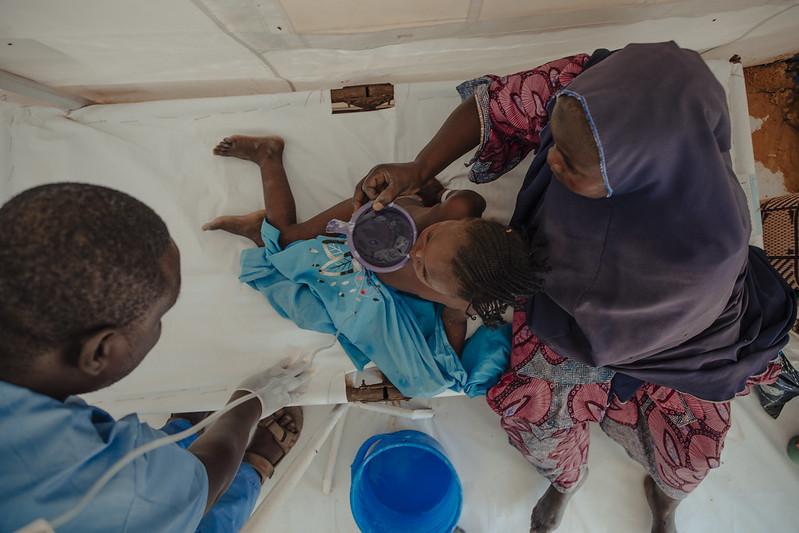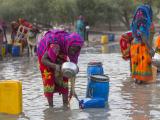Leaders from 20 African countries hit by recent cholera outbreaks met yesterday in a high-level meeting called by Africa Centres for Disease Control and Prevention (Africa CDC) and agreed on a continental approach to managing the outbreaks, similar to the approach used to battle mpox outbreaks in the region.
The meeting comes as cholera outbreaks worsen in some of the hot spot countries, including South Sudan, the Democratic Republic of the Congo (DRC), Angola, and Sudan. So far, African countries have reported about 130,000 cholera cases this year, about 2,700 of them fatal. African countries currently bear 60% of the world’s cholera burden, but outbreaks across the region are more deadly, with African countries reporting 93.5 % of the world’s deaths from the disease.
As African countries grapple with cholera, they are still in the heat of battle against multiple other infectious disease threats, including mpox, which has a similarly large footprint across the continent. Africa CDC’s mpox emergency committee met last week to assess the latest developments and determine if the event still warrants a public health emergency of continental concern. Also, the World Health Organization (WHO) mpox emergency committee is meeting today for the fourth time to make a similar assessments about Africa’s mpox outbreaks.
Adopting an incident management approach
At yesterday’s virtual meeting, which was also attended by Africa’s global health partners, leaders agreed to adopt the incident management support team (IMST), a tactic that was used successfully to coordinate the region’s response to mpox outbreaks. They also agreed to enhance cross-border surveillance, establish presidential task forces on cholera in their countries, mobilize domestic resources, and enforce accountability frameworks.
H.E. Mahmoud Ali Youssouf, foreign minister from Djibouti who chairs the African Union Commission, said in an Africa CDC statement that the region’s goal is to eliminate cholera by 2030. “This requires a continental shift—strong national leadership, domestic investment, integrated national actions, and regional coordination,” he said.
A need for more oral cholera vaccine
Ramping up oral cholera vaccine production in Africa was also a major topic. Jean Kaseya, MD, MPH, Africa CDC’s director-general, said Africa needs 54 million doses of oral cholera vaccine (OCV) each year, but receives barely half of that amount.
“This gap is unacceptable," Kaseya said. "Urgent action is needed to scale up local production and secure supply.”
At Africa CDC’s regular weekly briefing today, Ngashi Ngongo, MD, PhD, MPH, leader of Africa CDC's mpox incident management team, said Africa currently has three OCV manufacturing projects, which will require $150 million to scale up.
Factors include poor water and sanitation infrastructure
Ngongo also detailed the current situations in the four highest burden countries, which make up 85% of all cases in Africa and account for 92% of the region’s deaths. The impact has been especially tough on children, who account for 47% of cases and 37% of deaths.
Key factors driving the outbreaks include gaps in water and sanitation infrastructure, which vary by country and are most dire in South Sudan, where 60% of the overall population practices open defecation and 90% of schools have no handwashing facilities.
Ngongo said along with vaccine and medical supply shortages, fragmented coordination within countries is a problem, as are escalating risk factors such as conflict, natural disasters, and population movements.




















